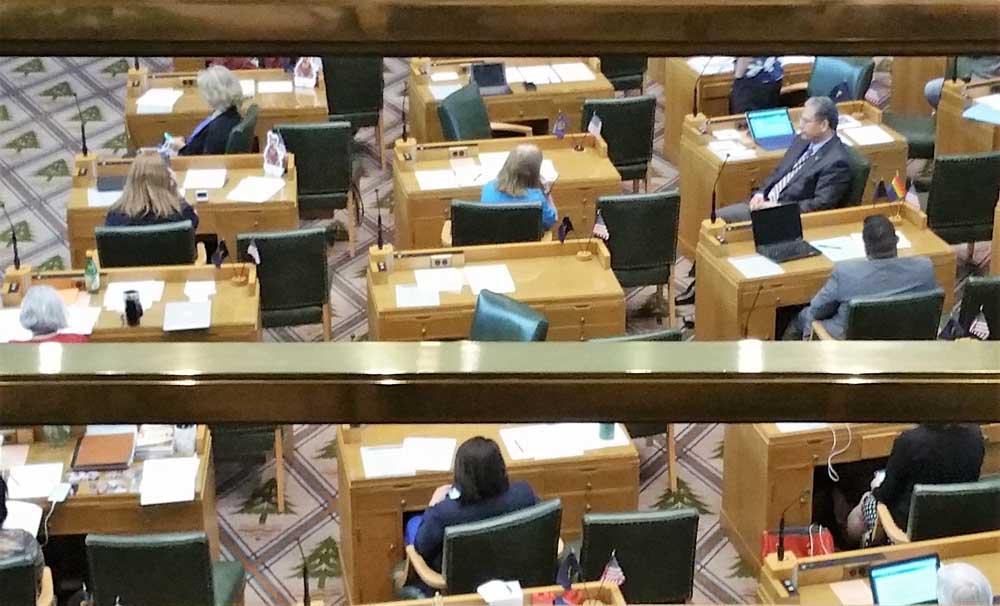Editorial: Legislature didn’t do enough about PERS
Published 12:00 am Thursday, March 8, 2018

- Members of the state House during a session. (Gary A. Warner/Bulletin file photo)
Oregon lawmakers did do something this year to address the state’s $20 billion-plus unfunded liability in its Public Employees Retirement System pension funds, though what it did is not nearly enough.
Before they left Salem on Saturday, lawmakers pushed Senate Bill 1566 through the House. The measure creates two special investment funds, called side accounts. They will be capitalized with a total of about $140 million from the state.
Trending
One account will be available to school districts as the cost of the contributions they must make to PERS go up.
A second smaller set of side accounts would provide an incentive for school districts to take money out of their reserves and invest them to pay down PERS. The state will match any of those school district contributions with an amount equal to 25 percent of whatever the school district puts in. The state’s total match won’t exceed about $25 million.
Both options for school districts are, in a way, free money. What’s not to like? Plenty.
“Don’t get me wrong — this is a good first step, and we applaud the governor for pursuing it, but the problem has more zeros than that,” Jim Green, executive director of the Oregon School Boards Association, and a member of the Salem-Keizer School Board, told The Oregonian.
The point he is making is that these new side accounts are not going to make a major difference in easing the burden on school districts. Even a few hundred million just won’t have much impact in a $20 billion-plus problem. And if school districts are keeping more reserves than they actually need, that exposes a different issue.
The state should not pin its hopes on the stock market to grow its way out of a $20 billion hole. It must consider options to cut costs. No matter what legislative leadership says, there are changes to be made to PERS that stand a good chance of passing legal muster. Why haven’t they been tried? Public unions oppose them all.
Trending
Oregon lawmakers are busy congratulating themselves on a short legislative session recently completed ahead of schedule. They shouldn’t. Their PERS bill doesn’t really fix a broken system, and the money it costs could have been put to better use elsewhere.








